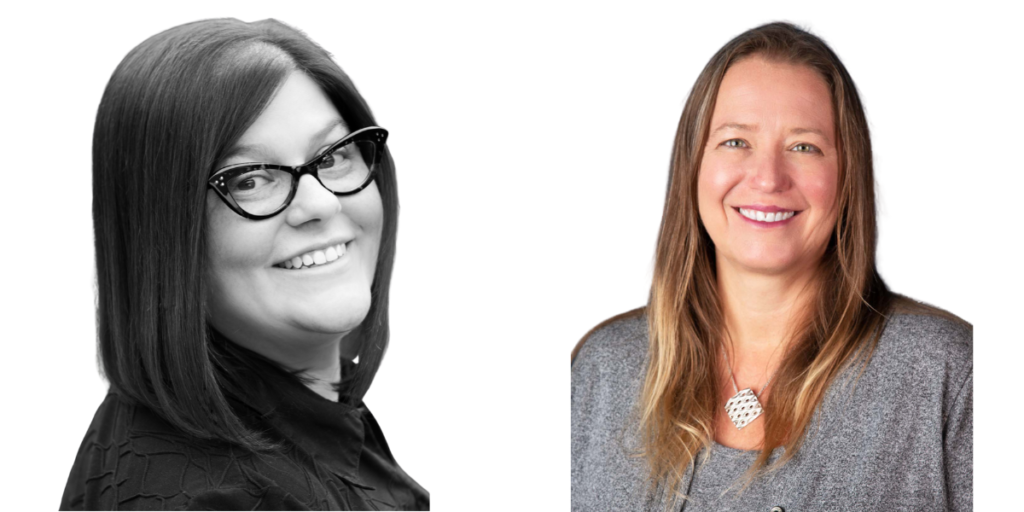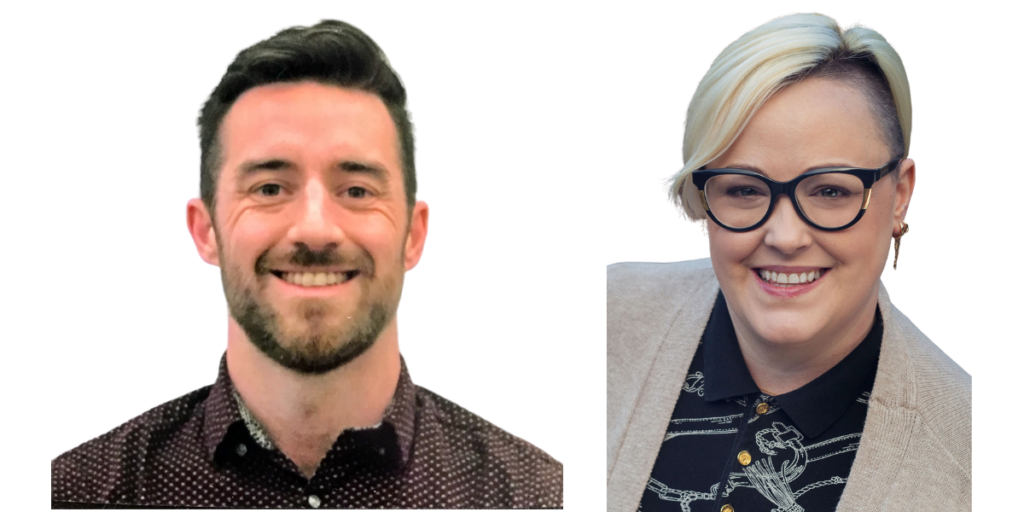All the times listed below are Eastern Time. All webinars are pre-recorded.
December 13: 1:30 pm

Acceptable Use: Online Censorship and Its Impact on Sex Education
Suzannah Weiss, CSE
Anna Richards
This talk will discuss the repercussions of online platforms’ censorship of sexual content, which came largely in response to the passage of FOSTA-SESTA in 2018, and how sex educators can get their voices heard online in the face of these restrictions.

Ethical Decision-Making for Sexuality Educators: A New Model
Joleen Nevers, MAEd, CHES®, CSE, CSES
Sara Oswald, PhD, AASECT
While there are many models of ethics that are available, there hasn’t been one specifically for sexuality educators. For the first time, an ethical model for sexuality educators was published earlier this year. This session will explain the model and provide participants opportunities to apply the model to their practice.
Then and Now: A Sex Ed Story 30 Years Apart
Kelley Dennings, MPH, FPHW
Sarah Baillie, MS
Syd Cole
This webinar will highlight a video campaign called “Contraception Conversations” and will include a live discussion about public school sex education in Nebraska between two people who went to the same high school 30 years apart. We will also share comprehensive sex education advocacy options.

What You Need to Know About Sex During Pregnancy
Sadia Arshad, MPH, MSN, WHNP-BC
Everyone has something to say about pregnancy, even if they’ve never been pregnant! Sex during pregnancy is often overlooked in sexual health education spaces. I will go over pregnancy myths, pregnancy facts, and tips for ensuring that people can have the best and safest sex during their pregnancy.
December 13: 3:00 pm

Educating Everyone: Teaching Teachers, Parents, and Students How to Create an Affirming Environment for All
Stacy Robustelli, PhD
Workshop attendees will learn about a new program model offered to implement systemic education in schools, with a focus on creating and maintaining an affirming environment. Trends in student and teacher perceptions of safety and belongingness and content knowledge of sexual orientation, gender identity and gender expression will be discussed.

Glitches, Hiccups, and Snags, Oh My! Controversy in School-Based Sex Education
Wendy Sellers, RN, MA, CSE, FASHA
This session will use real-life examples to illustrate controversy in school-based sex education. Then, participants will explore five strategies for avoiding controversy that they can apply to their own settings. Resources that support the strategies for avoiding controversy will be provided.

I Saved You a Seat: How to Create a Sex Ed Group in Your Community
Andrea Brand, MPH, MSW, ACC
This session describes the “dining room table” model I created for a group of kids whose parents were dissatisfied with the school sex ed and also uncomfortable talking with their kids themselves. A replicable and customizable blueprint will be shared to simplify the creation of a group in your community.

More Than a Vessel: Recentering the Pregnant Person in Sex Ed Pregnancy Curricula
Coi Jones
Jessica Swanson
An enriching discussion designed to challenge current education centered around pregnancy. Join us as we explore the current maternal health crisis and how sex education can improve outcomes. This webinar focuses on implementing a pregnancy inclusive framework where the identity and health of the pregnant person is prioritized and centered.
December 13: 4:15 pm

My Body Is Poetry
Calvin Early
My Body is Poetry is an interactive creative writing session designed to provide participants a process for sharing the unique story of the skin they live in. Participants will learn about the power of storytelling as a tool for empowering themselves and others.

Pleasure Beyond Pain: Maintaining Sex and Intimacy With a Chronic Illness
Breanna Lewis, MPH
This presentation will examine the intersectionality of sex and intimacy with individuals living with chronic illnesses and bring awareness about common concerns about sex and chronic illness, ways to communicate with partners, and general advice to stain maintain an a pleasurable sex life with a chronic illness.

It’s About Science, Not Sex: Looking Behind the Eyes of Children to Discover Their True Educational Needs
Deborah Roffman, MS, CSE, CFLE
Most “sex education” decisions are based in adult needs and preconceptions about what children should know and when they should know it. Remembering instead to look at the world as children see and understand it is crucial to establishing families and schools—working in authentic partnership—as their primary educators.

Teaching to Transgress Stigma in Sexuality
Susan Rahman, PhD
Remi Newman, MA
Nathan Bowman, MA
Sexuality, the Self and Society is an open educational textbook that will be in use in many institutions of higher learning. The authors will share their collaborative process and discuss how their approach differs from standard texts on the subject. Free access to the text will be included for participants.
December 14: 9:00 am
Child Advocacy Centers: Comprehensive Sexuality Educators Needed!
Kelly Ace, PhD, JD, AASECT
This workshop provides an overview of the Child Advocacy Center (CAC) model, forensic interviews in cases of suspected child sexual abuse/exploitation, and treatments commonly offered by CACs and affiliates. It describes how sexuality educators can play a critical role in CAC operations, including abuse prevention, professional training, and intervention efforts.
Cultivating Community and Resilience Through Online Sex Ed
Kehaunani Gunderson
Zoe King
In early 2020, three California organizations came together to create an online sexual health education program for youth in foster care. Presenters from the Reproductive Health Equity Project (RHEP) will describe the implementation of live, online, inclusive sexual health education using healing-centered practices tailored for youth in care.

Teaching Core Lessons with A Fresh Perspective: Centering Pleasure, Consent and Equity
Victoria Preston
Maddy Magnuson, MA
As educators, we have big dreams. We know comprehensive sexual health education can change the world to be more just and equitable. Join Maine educators as we take you on a journey of how we revamped our best practices and evidence-informed curriculum for educators and students in a post-COVID world.
December 14: 10:30 am

Affirming Puberty Conversations for Transgender and Gender Diverse Youth
Mary Cupelo
Jessica Dennison, CHES®
This presentation will give caregivers and educators the language and resources to have affirmative and inclusive conversations about puberty. While applicable to all youth, this presentation focuses on how to have puberty conversations with transgender and gender diverse youth that are experiencing gender dysphoria.
 Embracing the Feelz Within Sex Ed
Embracing the Feelz Within Sex Ed
Steph Zapata
This workshop proposes a seismic shift of sex education entirely. We are here to explore how 97% of sex ed disregards our emotional wellness, and create a framework that centers a full person with thoughts, feelings, and yes, sexuality!
Sex After Sexual Violence: From Grounding Exercises to Kink and BDSM
Quinn Pellerito, BFA, SAC
In this workshop we will discuss the diverse and non-linear ways that people grow, heal, and navigate sex after experiencing trauma. We will focus on expanding our definitions of sex, grounding strategies, and ways to make the implicit power dynamics in sex explicit to give agency back to the survivor.
December 14: 12:00 noon

Empowering Urban Youth to Make Informed Choices
Regine Elie, MEd
Jazmine Brazier
This interactive workshop presents a successful blueprint for sex education among the urban poor. Participants will (1) Identify sexual health inequities and risk factors for urban youth (2) Engage in hands-on learning that works for this population (3) See how to build strong community partnerships to support target youth.

LARPing for Sociosexual Education
Nicholas Maio-Aether, MS, MA, LBA, CSC, BCBA
For humans with social anxieties and/or Autism, Live Action Roleplaying (i.e., LARPing) can be a fun way of gaining experiences in a safe and affirming environment. Experiencing is at the heart of learning, and this presentation looks at how LARPing can be an effective teaching tool regarding sociosexual behaviors.

Sexuality Education and Social Media: Do’s, Don’ts, and Navigating Restrictions
Gillian Singer, MPH, CSE
Based on personal experience as the founder of her own digital sexuality education platform, Gigi will detail the state of sexuality education on social media today, discuss the rules and restrictions of doing so, and give tips on how to navigate these restrictions to grow your platform.

Understanding the Healthcare Needs of Kink/BDSM Practitioners
Conor Smith, PsyD
Kaela Joseph, PhD
This webinar aims to share information on the healthcare experiences of kink practitioners in healthcare settings, including harm reduction strategies. We will provide skills for educators to utilize when working as advocates/consultants on behalf of their clients/patients who are BDSM community members.
December 14: 5:00 pm

Findings From a Comparative National Study: Sex Education as a (Non)Moral Imperative
Abigail Newell, MA
The webinar summarizes findings from a comparative, multi-state study on sex education implementation and offers recommendations for educators. Findings illustrate how educators struggle to pursue social justice in the face of powerful opposition. Results suggest sex education should be reframed as a moral imperative to achieve racial/gender equity.

The Cultural Impact of the Deep South on Sex Education and Professional Development
Joyee Washington, PhD, MS, MPH, CHES®
The purpose of this session is to explore cultural factors impacting sex education and professional development in the Deep South, specifically Mississippi. Furthermore, this session will explore implications, best practices, and lessons learned on how exploration of cultural context can be applied in other communities.

Using Sexuality for All Abilities to Support and Adapt Evidence-Based Interventions
Katie Thune, MEd
Anna Hayek, RYT
In this webinar, we will demonstrate how to incorporate Sexuality for All Abilities Sex Education curriculum and other inclusive strategies with the current Sex Education curricula and logic model you are using in order to better support learners with intellectual and developmental disabilities
December 15: 9:00 am

“F*ck No”…And Other Radical Self-Care Strategies for Sex Educators
Catherine Dukes, LCSW, PhD
Christopher Moore
In this workshop, participants will be invited to explore and challenge older or traditional views of self care and instead conceptualize developing a trauma-informed life, meaning, a nurturing life you are not working to escape from. Self-care as practice, elements of trauma informed approaches, mindfulness and boundaries will be explored.

LGBTQIA+ Behavioral Health: Beyond Rainbows and Unicorns
Philip McCabe, CSW, CAS, DRCC
LGBTQIA+ people are more likely to use alcohol, tobacco, and other drugs than the general population. Additionally are nearly four times more likely to experience violent victimization.

Mandatory to “Fun”datory: Revolutionizing Title IX Education
Stacey Rose, MA
Let’s stop simply meeting mandates for Title IX and sexual violence prevention! Schools often lack sex positive, trauma-informed, and practical conversations around consent, focus too much on reducing harm instead of perpetration, and throw in legal jargon that disconnects with students. Let’s learn a fun and functional way to teach.

Power: Identity and Relationships
Oronde Cruger
Mackenzie Bartlett
What is power and how does it affect consent, attraction, and dating? This webinar integrates lived experiences, pop culture, and social science to explore how young people can navigate power differentials and empower one another.
December 15: 10:30 am

Centering the Disability Experience: Normalizing Sexuality
Rachel Kaplan, MPH
Youth with disabilities are a population who are excluded from sexual health education. Rachel will address biases and assumptions regarding people with disabilities to help reframe thought processes about their ability to engage in healthy, loving sexual relationships to ensure they receive appropriate education that prevents abuse and exploitation.

Second Puberty: Sex Education Including Older Adults
Nathalie Huitema, PhD
The stigma around aging bodies has serious consequences for older adults, such as an increase in plastic surgery in older women and an increase in the use of Viagra to keep feeling young and potent. Informing youth what normal bodily changes are can alter their sexual health in later life.

The Pleasure Principle: Sexual Pleasure, Sexual Health, and Taking a Successful Sexual History
Ivan Monforte, MFA
Courtney Ciervo, MPH
The Pleasure Principle: Sexual Pleasure, Sexual Health, and Taking a Successful Sexual History will increase participants’ awareness about the connection between anatomy, pleasure, and health, which are rarely addressed when conducting traditional sexual health education. This webinar will include guidance around taking a sex-positive, client-centered, sexual history and risk assessment.




